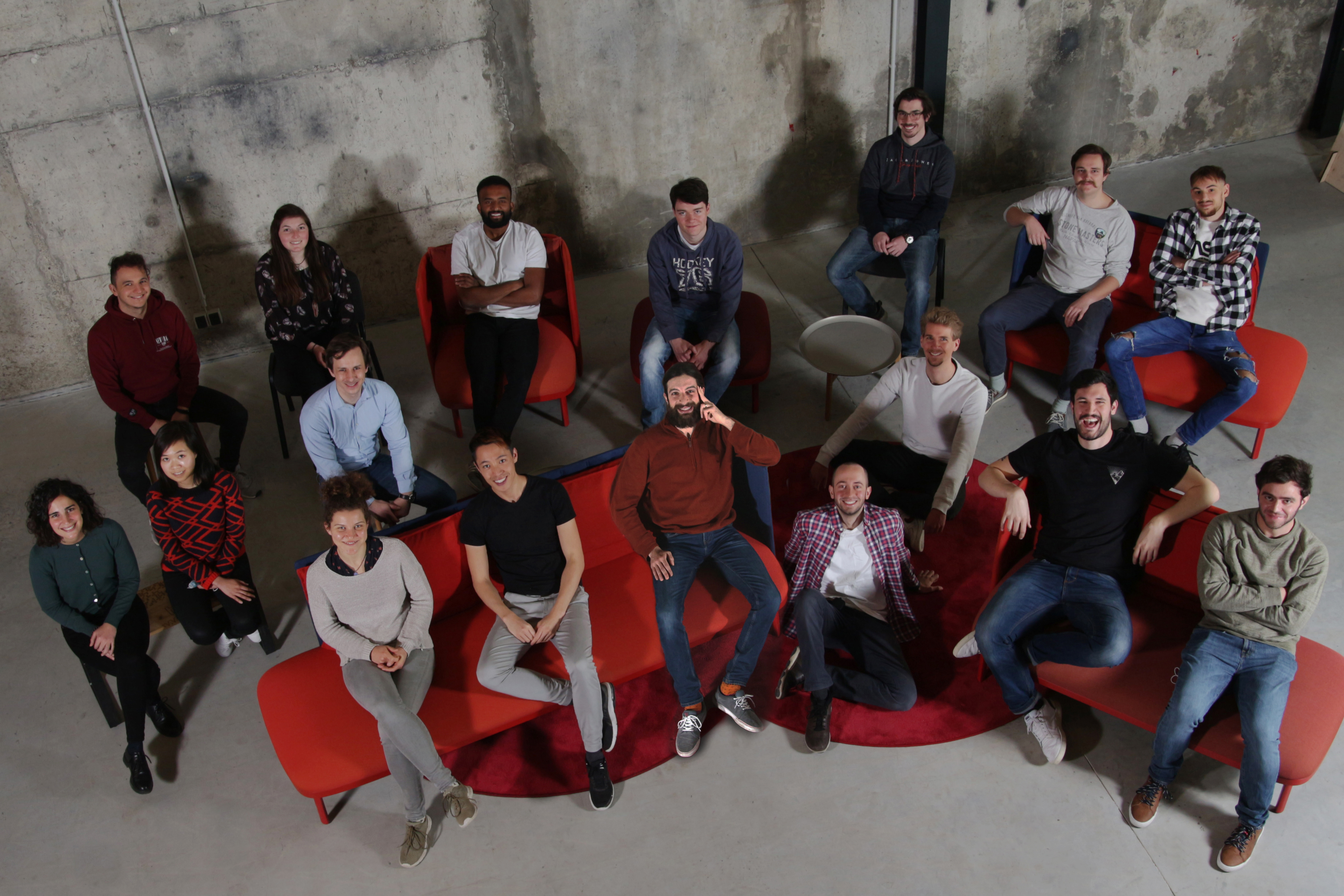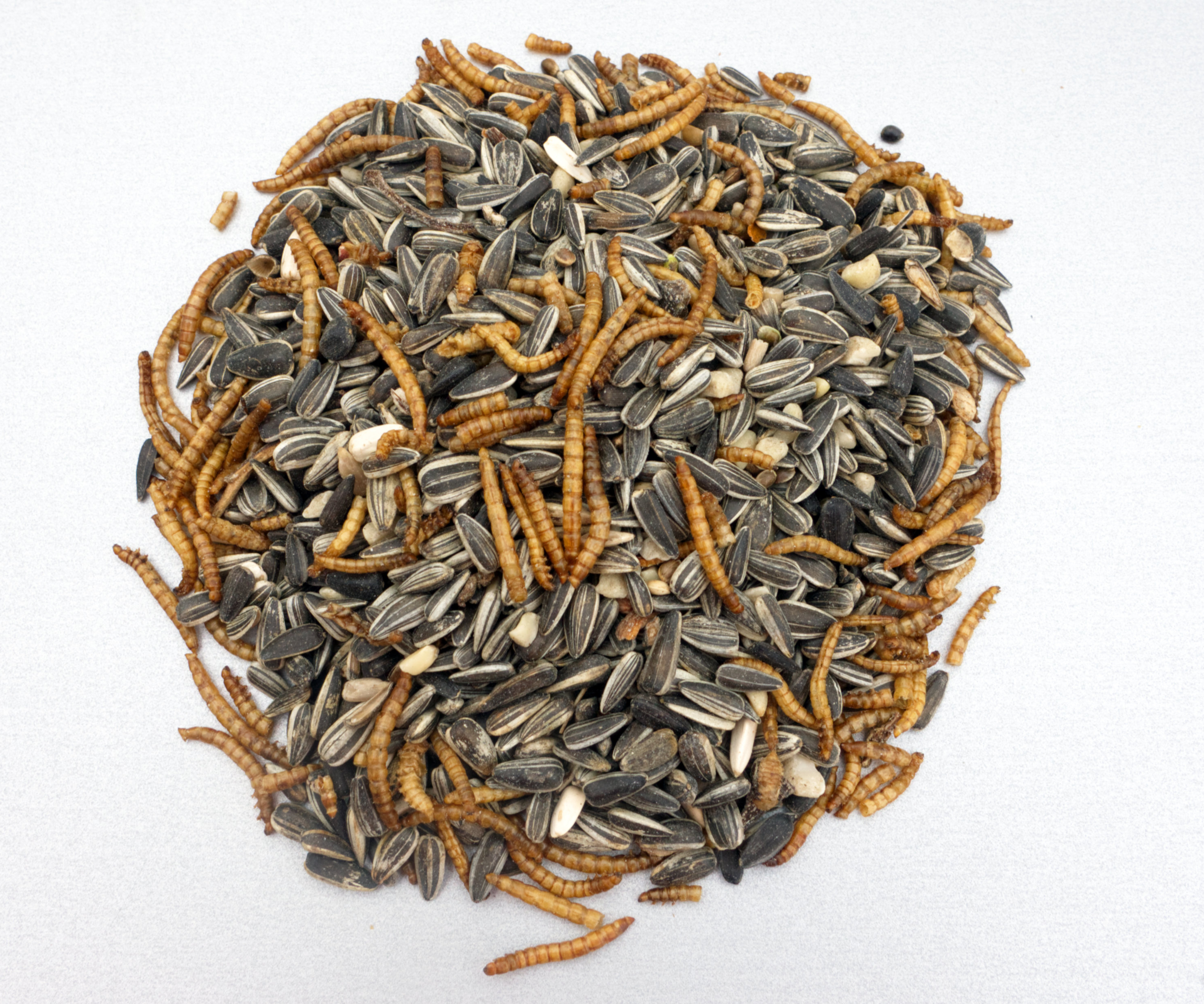Main navigation
Insect farming for sustainability
Mealworms instead of fish meal and soybean meal - this is what the sustainable future of feed production looks like as Alpha-Protein GmbH see it. The company has built a highly efficient automated production plant in which residual materials from local food production are used to breed mealworms.
Innovations often arise from solutions to everyday problems. This was the case for the founder of Alpha-Protein GmbH, Gia Tien Ngo. After completing his master's degree in psychology & management in Frankfurt, Ngo attended Boston University to round off his university education with an MS in global marketing management. While there, he rented a room in a flat which he shared with pescovegetarians. While the ambitious athlete had nothing against delicious fish meals, he was nevertheless looking for a cheaper source of protein to maintain his performance level. However, his flatmates would not have been very pleased if he had cooked meat in the flat. So Ngo came up with the idea of adding mealworm meal to fruit smoothies to provide a high-quality source protein. "Mealworms, or more precisely the larvae of the mealworm beetle, have a much higher protein content than chicken, around fifty-five percent more, and taste slightly nutty," Ngo reports.
Ever since, he’s been fascinated by insect protein. Back in Germany, he thought about how insects could be used as a sustainable and high-quality protein source on a broad basis. Animal feed appeared to be an economically interesting option. However, Ngo not only wanted the product itself to be sustainable, but also the way it was produced. The idea of a sustainable insect farm was born. The mealworms were given feed made from leftovers, preferably locally sourced. Ngo and a small, dedicated team received funding from the German government's EXIST funding programme and subsequently from the Baden-Württemberg government’s Young Innovators programme, and set out to establish a company in late 2017. Alpha-Protein GmbH was officially founded in May 2020. One year later, the young company already had 20 employees and an efficient, sustainable production line for manufacturing mealworm products from the ground up.
Dry goods from the mealworm factory

The company’s scalable technology for breeding mealworms has now been patented. The core of the system is the supply portal, an automated system in which the worms are supplied with feed from above via a stool-like construction. "It is important to us to use local products. That's why we work with regional SMEs such as the Badische Backstub' bakery chain, which supplies us with stale bread. We obtain other important feed components from Kraichgau Raiffeisen Zentrum eG, for example. Other SMEs supply us with pomace and brewers’ grains. But we also work with large companies that supply us with food scraps," says Ngo. Incidentally, the mealworms do not necessarily need a water supply as the water content in fruit and vegetables is enough for them.
From 2022, the company aims to produce around 2,100 metric tonnes of live mealworms annually, and even more will be possible. "We are continuously developing our production processes. One important point is to optimise processes in the right places. The use of big data and artificial intelligence will play an important role in this. And we are experimenting with different quantities of feed in order to determine how much feed has to be supplied to the worms," explains Ngo. The system will automatically detect the worms' feed requirements and process the batch of mealworms currently being bred at the right time before the larvae pupate.
The mealworm mass yield is simply controlled by the temperature: at between 25 and 30 °C, the mealworms take a few weeks to grow, at lower temperatures they grow more slowly. The total development time of the larvae can be varied from a few weeks to several months. The bulk of Alpha-Protein’s production is sold as dry goods although customers can also order live mealworms. Grinders produce finer or coarser mealworm meal depending on customer requirements.
High-quality proteins for animal and human nutrition
According to Ngo, the products have a very good level of acceptance, and the company's own market studies show that there is a massive increase in demand: "Germany still has a clear need to catch up internationally in terms of insect breeding. It is important for us to position ourselves on local markets."

Alpha-Protein has a wide range of potential customers. For example, wherever fish meal or soy is used as feed, sustainably produced mealworm meal can be offered as an environmentally and economically viable alternative to ensure the supply of essential amino acids. "Around one-third of the world's total catch of fish is processed into fishmeal. This is no longer sustainable in view of emptying oceans," Ngo says. "Mealworm meal is a very natural diet for chickens and trout."
Mealworms can also be used to make dog and cat food: "Dogs and cats with food intolerances tolerate insect protein very well, so mealworm meal is also very suitable for hypoallergenic feed." The company founder also sees potential for cattle feed: "After all, cattle also eat insects when grazing on pasture land, and in any case it makes more ecological sense than feed with fish meal." In principle, he sees the possibility of using mealworm meal or other mealworm products in all feeds for pets and livestock.
The Alpha-Protein team has far-reaching plans for the future. They are planning to multiply production and enlarge the factory premises accordingly. Additionally, in the medium term, the company wants to digitalise the system to make mealworm breeding even more efficient. Another option is to extend feed production to other insect species. "However, at the moment we’re sticking to mealworms, as they have a high methionine content and this amino acid is particularly important for the growth of farm animals," Ngo explains. In May 2021, the yellow mealworm became the first insect to be approved as a human food in the EU. This represents an important milestone for adding mealworm products to human food in Germany. Alpha-Protein already has its eye on the market for this.
